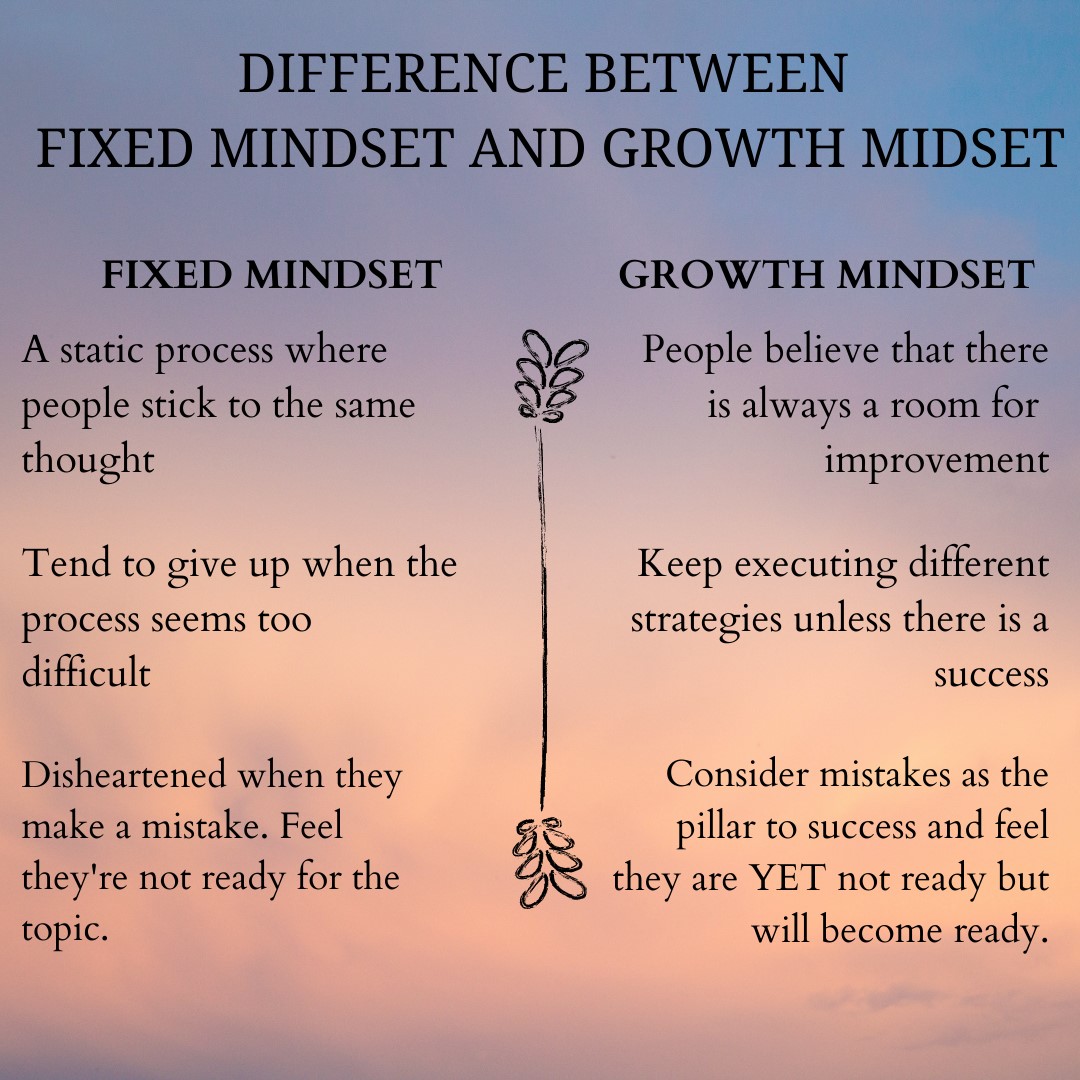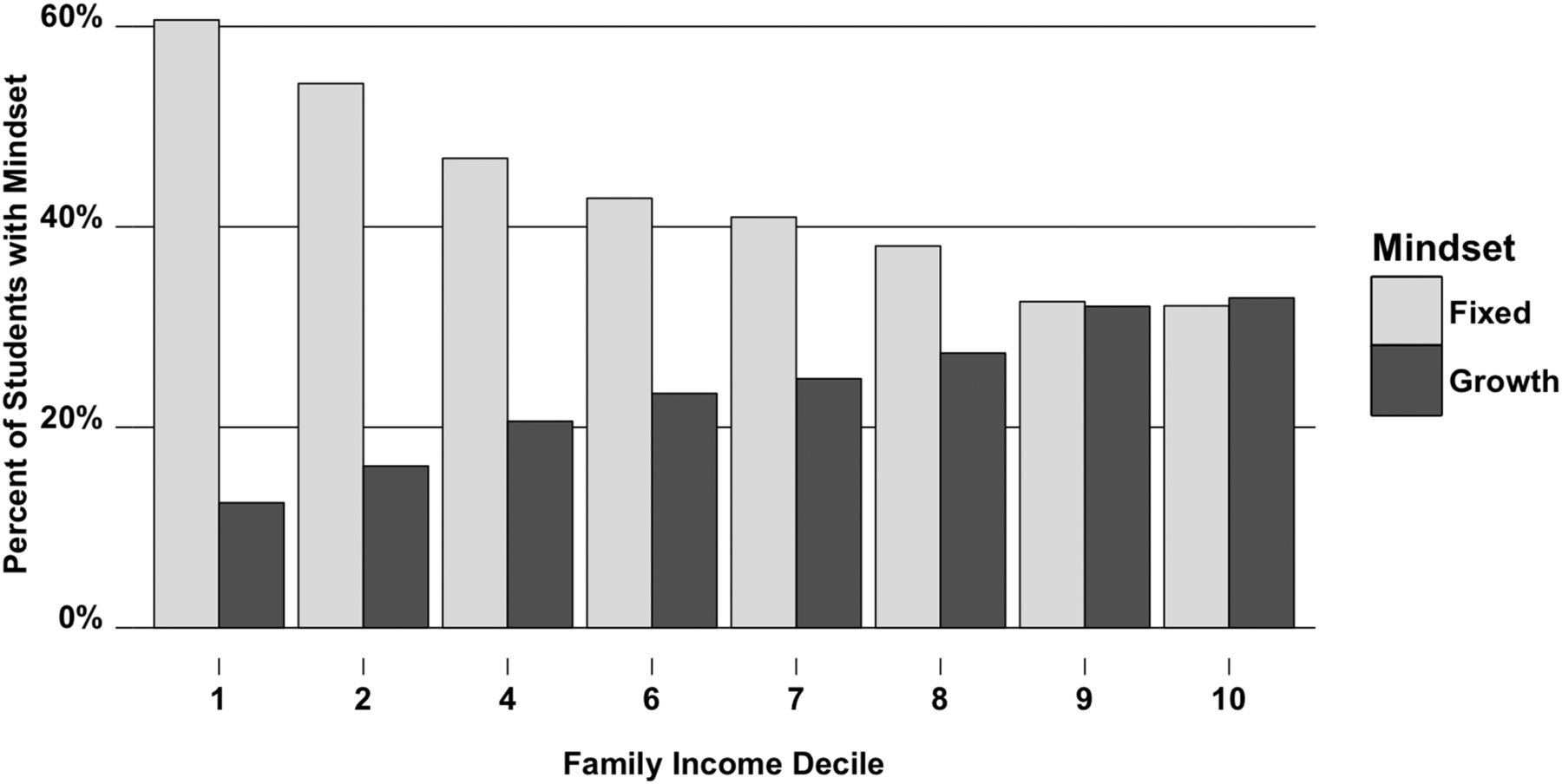How To Cultivate A Growth Mindset In Your Classroom?
20th July 2022

What is a growth mindset? Teachers across the globe have always been a part of this question because they spend a huge portion of their time with kids, thereby, can analyze the mindset of kids. A growth mindset is a simple scenario where a person believes that abilities can be acquired through practice and learning with utmost dedication. On the contrary, believers of a fixed mindset have an orthodox faith in the fact that abilities are innate.
However, studies and research conducted by online special education courses have given a clear picture that developing a growth mindset is possible through proper teaching strategies and training. A mindset intervention process is regulated where teachers foster a growth mindset in students. Students can learn and grow even if they’re facing challenges in their lives.
Let’s see the difference between a fixed mindset and a growth mindset:

Why is it necessary to teach a growth mindset in classrooms?
For ordinary kids, it is quite possible to install a growth mindset in their minds. Cultivating a growth mindset is quite flexible in their cases as their brain has developed in a very normal way and they can perceive instructions in one go. However, these days the educational system is having an inclusive classroom infrastructure where both ordinary and special students study together.
Special education programs have come up with brilliant approaches that support encouraging students with special abilities to develop a growth mindset. With proper classroom exercises and intervention sessions, special education teachers are motivating specially-abled students to develop a growth mindset. It helps them to gain confidence, makes them independent, and indulges them in activities that bring out their special and hidden talents.

How to foster a growth mindset in the classroom:
There are multiple strategies that can be used to develop such a revolutionary idea in students.
- The struggle is part of everyone’s learning phase and teachers must normalize it., If special education teachers emphasize and reinforce that idea it will help students to react positively when they feel challenged. In fact, they should be motivated to take part actively in any process if they feel shaky or challenged. Teachers must have the potential to portray challenges bring fun and success tastes better after overcoming hurdles.
- Teachers must help students to perceive things that they’re learning. Let's say you find a student who is having learning disabilities and has problems identifying letters correctly. Give them hope that pretty soon she/he will be able to identify letters properly. Students should never feel unmotivated during the learning process.
- Whenever students make mistakes teachers must point those out and should promote that the best learning comes out from making mistakes. Kids should understand that making mistakes will never cause any harm as they’ll learn to do a task accurately if they do a mistake. When they perform a task nicely teachers must celebrate that. Giving tokens of love like cute badges, cool stickers, etc., can really make their day!
- Incorporating the sense of teamwork should be done at a young age so that kids become team players when they grow up. This is the biggest advantage of an inclusive classroom where everyone gets the opportunity to take part in group activities. Along with setting a goal for special students, special educators should plan an inclusive activity that suits the mental wavelength of every student.
- Constantly providing positive feedback in a praising tone can impact adversely. Students who are being congratulated on a regular basis can become self-centric and this often leads to putting no effort from their end. This ultimately breaks the success streak. Besides, students who are not being able to perform accurately might develop an inferiority complex. Both of these groups can lose their credibility.
So based on all these strategies and reasons, online special education courses are encouraging the practice of a growth mindset in an inclusive classroom. Cultivating a growth mindset in students will make them more confident and brave to fight against everything. Hence, fostering a growth mindset in the classroom using apt teaching strategies is always influential. In case you’re wondering how to approach special education courses, call this toll-free number: 1800-212-6400.
Written By : Victoria Lewis

